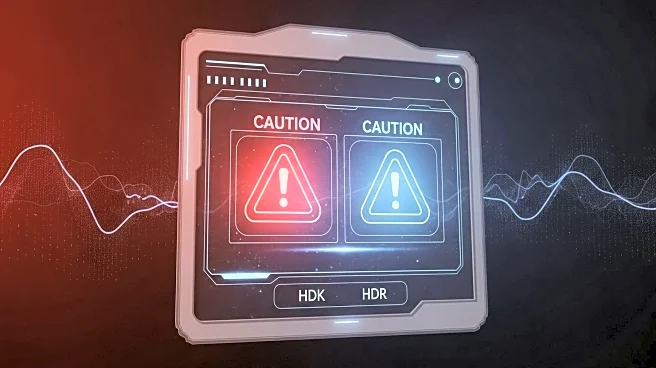What is the story about?
What's Happening?
The use of AI chatbots like ChatGPT is being scrutinized for their limitations in handling critical tasks. While these tools are praised for their ability to assist with creative tasks such as writing emails and brainstorming ideas, experts caution against relying on them for serious matters like diagnosing health issues, making safety decisions, or drafting legal documents. The concern is that AI chatbots can provide incorrect or outdated information, which can lead to significant real-world consequences. For instance, using ChatGPT to diagnose health symptoms can result in misleading information, as it lacks the ability to perform physical examinations or order lab tests. Similarly, relying on AI for legal document drafting can be risky due to varying state laws and the potential for missing critical legal elements.
Why It's Important?
The warnings about AI chatbots highlight the importance of understanding their limitations, especially in areas where accuracy and expertise are crucial. In the U.S., industries such as healthcare, legal services, and financial planning could be adversely affected if individuals rely on AI for tasks that require professional judgment and compliance with regulations. The potential for misinformation and errors underscores the need for human oversight and professional consultation in these fields. As AI continues to integrate into various sectors, stakeholders must ensure that its use complements rather than replaces human expertise, particularly in situations where lives, legal rights, and financial stability are at stake.
What's Next?
As AI technology evolves, there may be increased efforts to improve the accuracy and reliability of chatbots in handling complex tasks. Developers and policymakers might focus on creating guidelines and standards to ensure AI tools are used appropriately and safely. Additionally, there could be a push for more public education on the limitations of AI, encouraging users to seek professional advice for critical decisions. The ongoing dialogue about AI's role in society will likely influence future regulations and ethical considerations surrounding its use.
Beyond the Headlines
The ethical implications of AI chatbots extend beyond their immediate use. The reliance on AI for tasks traditionally performed by humans raises questions about accountability, privacy, and the potential erosion of professional expertise. As AI systems become more prevalent, there is a risk of diminishing human skills and judgment, which could have long-term cultural and societal impacts. Ensuring that AI complements human capabilities rather than replacing them will be crucial in maintaining ethical standards and preserving the integrity of professional fields.















